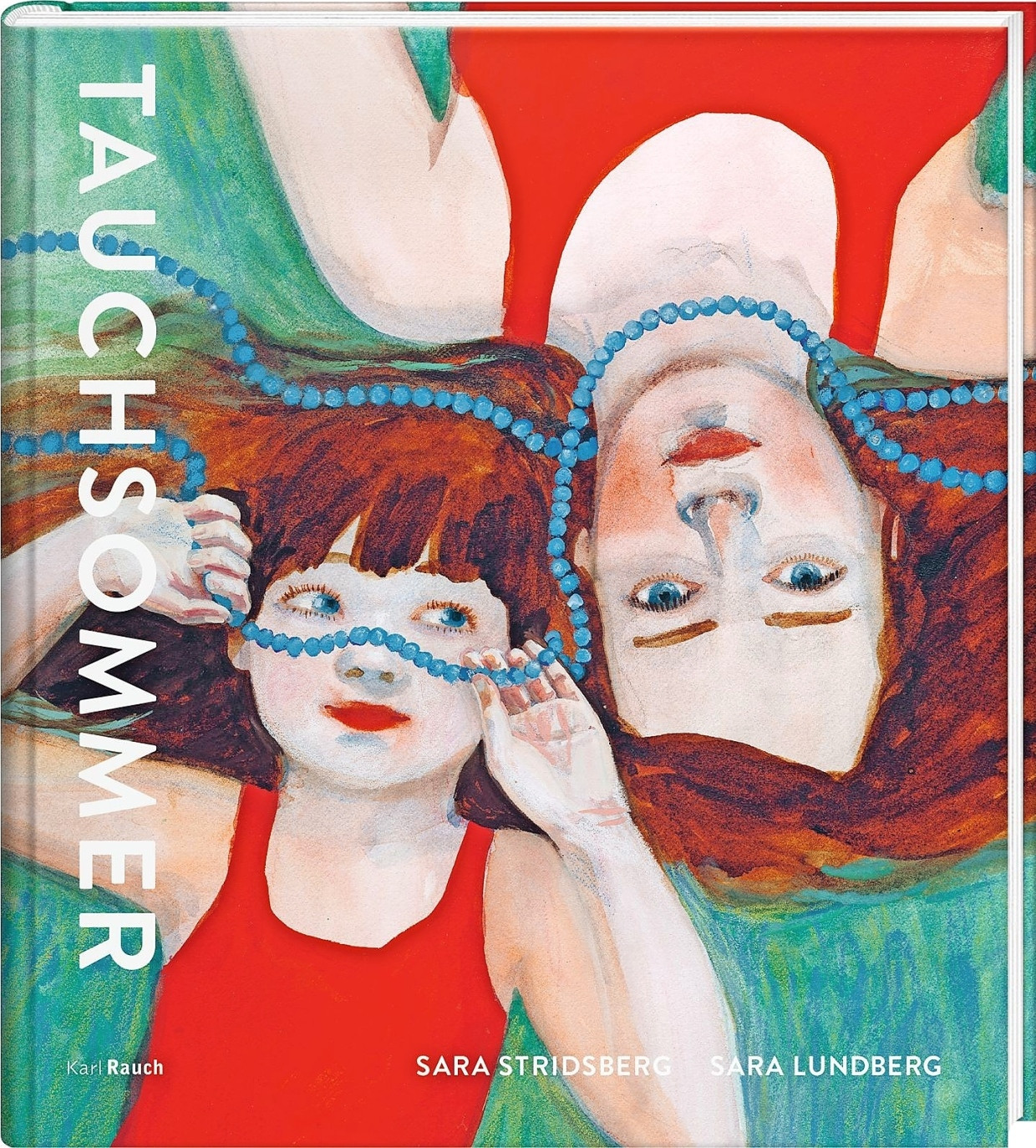Keiner sagt ihr etwas, so fängt das schon an. Keiner, das heißt hier zunächst: Zoes Mutter, die vor ihrem Kind die Krankheit des Vaters lange Zeit verborgen hält. „Eines Tages war mein Papa einfach weg“, so beginnt das Bilderbuch „Tauchsommer“ von Sara Stridsberg und Sara Lundberg, und bereits hier, auf der ersten Doppelseite des Buchs, zeigt sich das exquisite Zusammenspiel der beiden Urheberinnen.
„Jemand“ habe den Vater „aus der Wirklichkeit herausgeschnitten“, vermutet Zoe, „am Frühstückstisch, wo er sonst saß, war jetzt ein Loch“, konstatiert sie; das zugehörige Bild zeigt ein Mädchen, das still, aber beharrlich auf den leeren Platz am Tisch blickt, wo wie zum grausamen Gedenken ein Teller gedeckt ist, der aber leer bleibt. Nur dass mit der Mutter eben noch eine zweite Person am defizitären Tisch sitzt und angestrengt von Zoe und dem Platz des Vaters wegblickt. Die Zeitung liest sie, als gäbe es nichts Wichtigeres auf der Welt, und darauf, dass sie das Blatt vom ersten bis zum letzten Buchstaben durchsieht, möchte man wetten.

The intensity of this book, which is unusual in every respect, arises from passages where you imagine the author Stridsberg and the illustrator Lundberg throwing balls to each other and determining the degree of openness and discretion that their joint book displays from page to page should: Where does the text say something, where does the image take over, and does it also work the other way around?
Quiet, cool, friendly and ultimately enigmatic
In any case, the puzzles, which for Zoe are connected to her father's fate, give the book an aesthetic direction. This is unusual enough, especially in comparison to the many other works for children and young people that deal with a similar topic as “Diving Summer”, the mental illness of a parent. The surfaces on which Lundberg depicts the background for this story are smooth, so that even the cheerful seventies design of the wallpaper seems cool and intangible, and the faces of the people with whom Zoe finally finds out are also smooth , where her father disappeared to. Ultimately, Zoe's own face is smooth – the girl will continually adapt to the confusing and disturbing world of adults over the course of the story told in this book, which spans a few months and looks ahead to a few years.
However, it is one of the incomprehensible miracles of this story that Zoe, of all places in the facility that becomes her father's home for a long time to protect her from an oppressive reality, meets a person who doesn't fend her off with her questions, but actually kills her she advertises.
Zoe has defied her mother's ban and regularly visits the clinic where her father is a patient. She has to cope with the fact that her father, when asked if he would like to finally come back home, only answers with “I don’t know”. In fact, he doesn't even want to be visited. At least he gets so involved with his daughter that he plays chess with her “to pass the time,” as Zoe notes without a hint of bitterness.
The woman in the bathrobe who then suddenly appears and to whom the illustrator Lundberg gives wonderfully flowing contours is called Sabina. What makes her special is her interest in Zoe, who must miss that in her own parents for different reasons. And even though Zoe turns down Sabina's surprising invitation of “Shall we go swimming?” during this first encounter because she can't see any possibility of swimming in the institution, this begins an intense friendship between the open but essentially inscrutable woman and the man who has been left alone Girl who gradually understands that she doesn't necessarily need water to swim together.
Because that is the dynamic of this quiet, cool, friendly and ultimately enigmatic book, which, despite the manageable plot, is not lacking in twists and turns that come as a surprise not only to Zoe: expectations of stability are thwarted, but those of the opposite too, and for her Friendship with those who navigate heavy seas requires a strength and understanding that not everyone can muster.
Sara Stridsberg, Sara Lundberg: “Diving Summer”. Translated from Swedish by Lukas Dettwiler. Karl Rauch Verlag, Düsseldorf 2024. 40 pages, hardcover, €18. From 8 years















